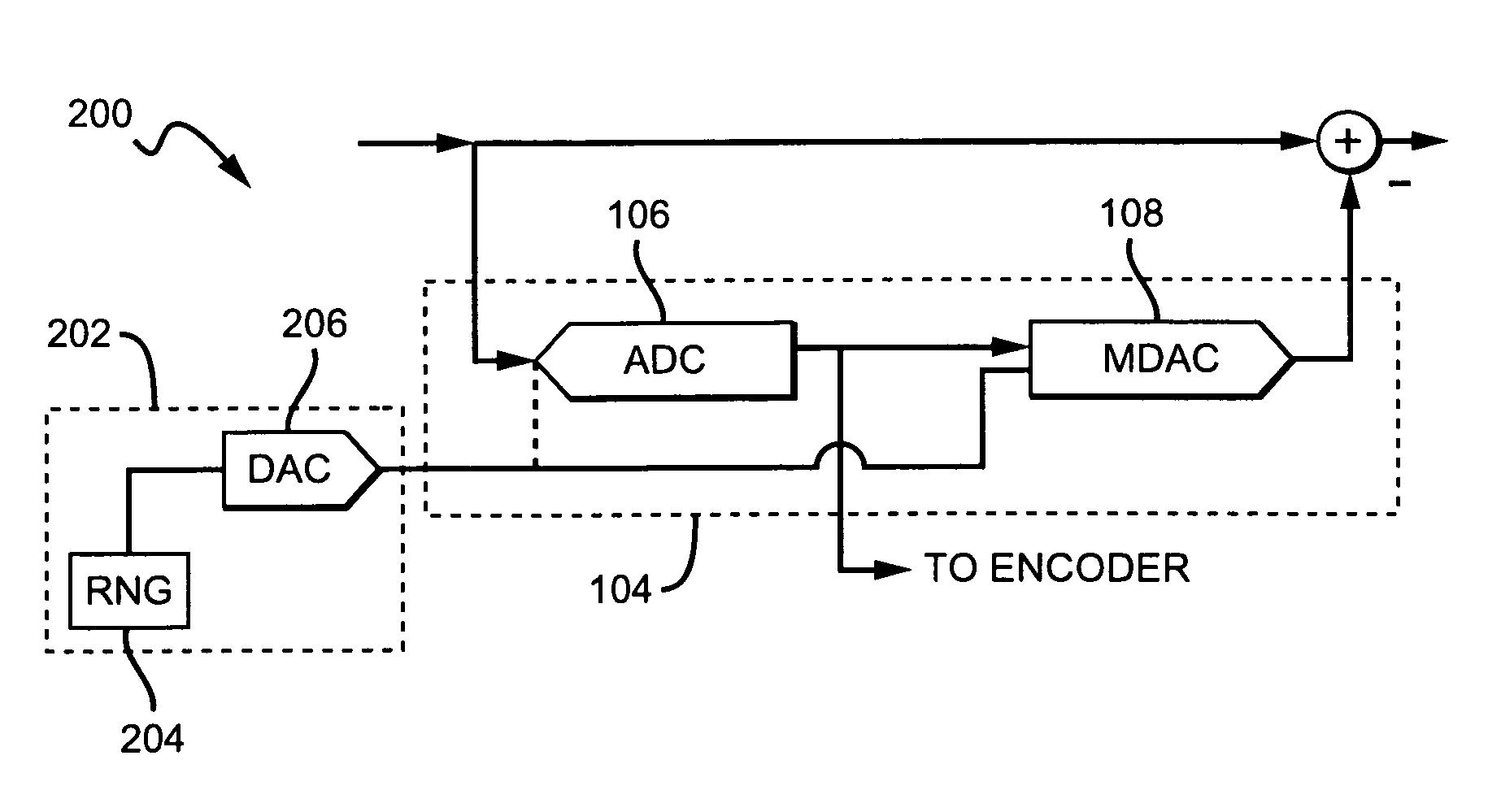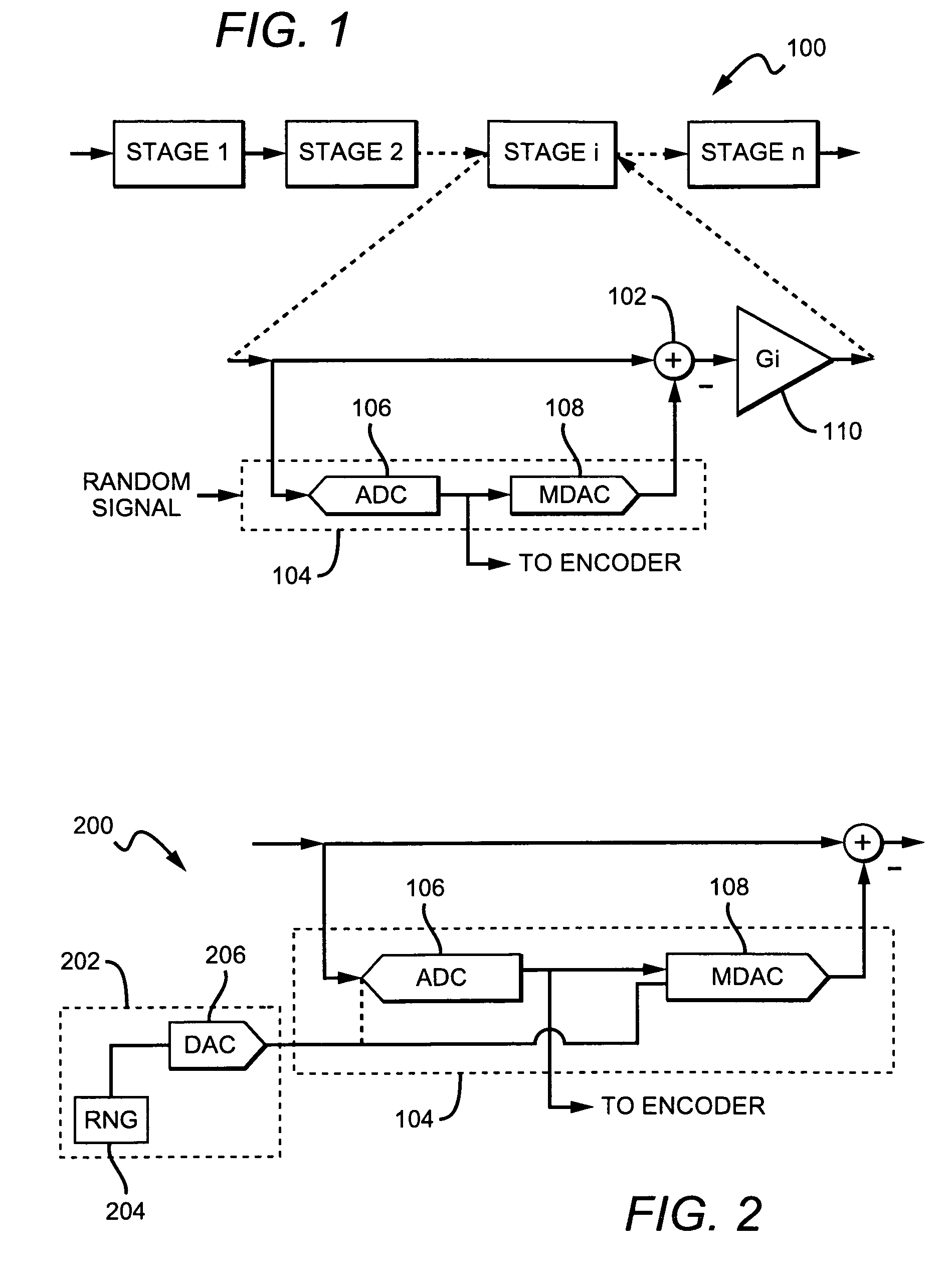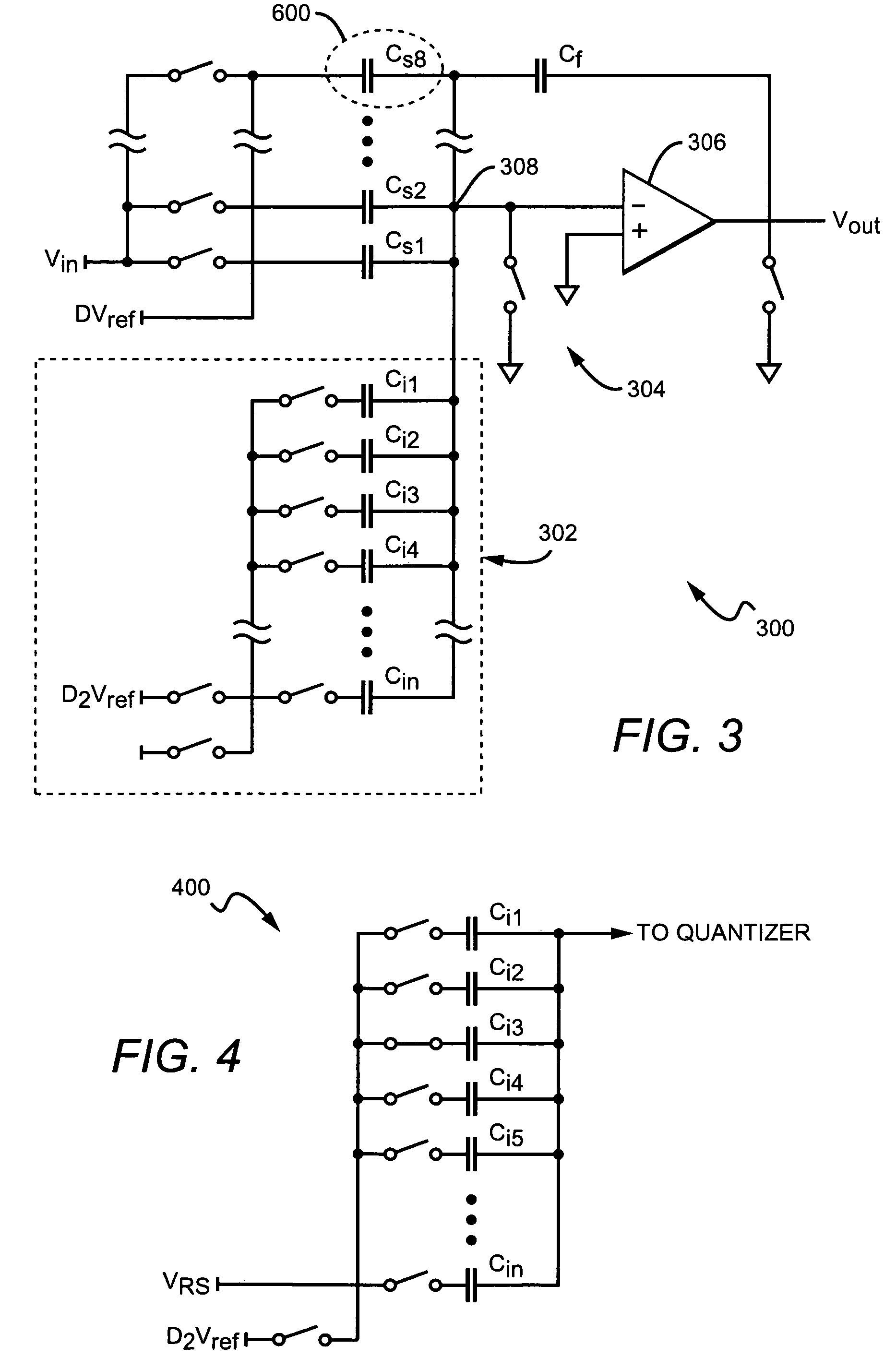Correlation-based background calibration of pipelined converters with reduced power penalty
a pipelined converter and background calibration technology, applied in the field of pipelined adc circuit calibration, can solve the problems of high bandwidth, poor resolution, and slow resolution of integrating converters, and achieve the effect of reducing power penalty, improving accuracy, and improving accuracy
- Summary
- Abstract
- Description
- Claims
- Application Information
AI Technical Summary
Benefits of technology
Problems solved by technology
Method used
Image
Examples
Embodiment Construction
[0026]The present invention provides a novel ADC design with elements that allow for efficient dynamic calibration. The present invention also provides novel methods for calibrating an ADC. The new design and methods work particularly well with pipelined ADCs. Pipelined ADCs are a popular implementation that employs multiple subconverting stages to digitize an analog signal, piece by piece. A coarse conversion is performed on the input signal in the first stages with finer conversion done in the subsequent stages. The converted signals are recombined to yield an accurate digital representation of the original analog signal. Digital signals are easily manipulated and processed and allow for interfacing of real-world analog signals to digital systems.
[0027]In pipelined ADC architectures, the various subconverting stages must be tightly calibrated to prevent an error, such as an inter-stage gain error, from propagating through subsequent stages. Because of multiple high gain stages, ev...
PUM
 Login to View More
Login to View More Abstract
Description
Claims
Application Information
 Login to View More
Login to View More - R&D
- Intellectual Property
- Life Sciences
- Materials
- Tech Scout
- Unparalleled Data Quality
- Higher Quality Content
- 60% Fewer Hallucinations
Browse by: Latest US Patents, China's latest patents, Technical Efficacy Thesaurus, Application Domain, Technology Topic, Popular Technical Reports.
© 2025 PatSnap. All rights reserved.Legal|Privacy policy|Modern Slavery Act Transparency Statement|Sitemap|About US| Contact US: help@patsnap.com



